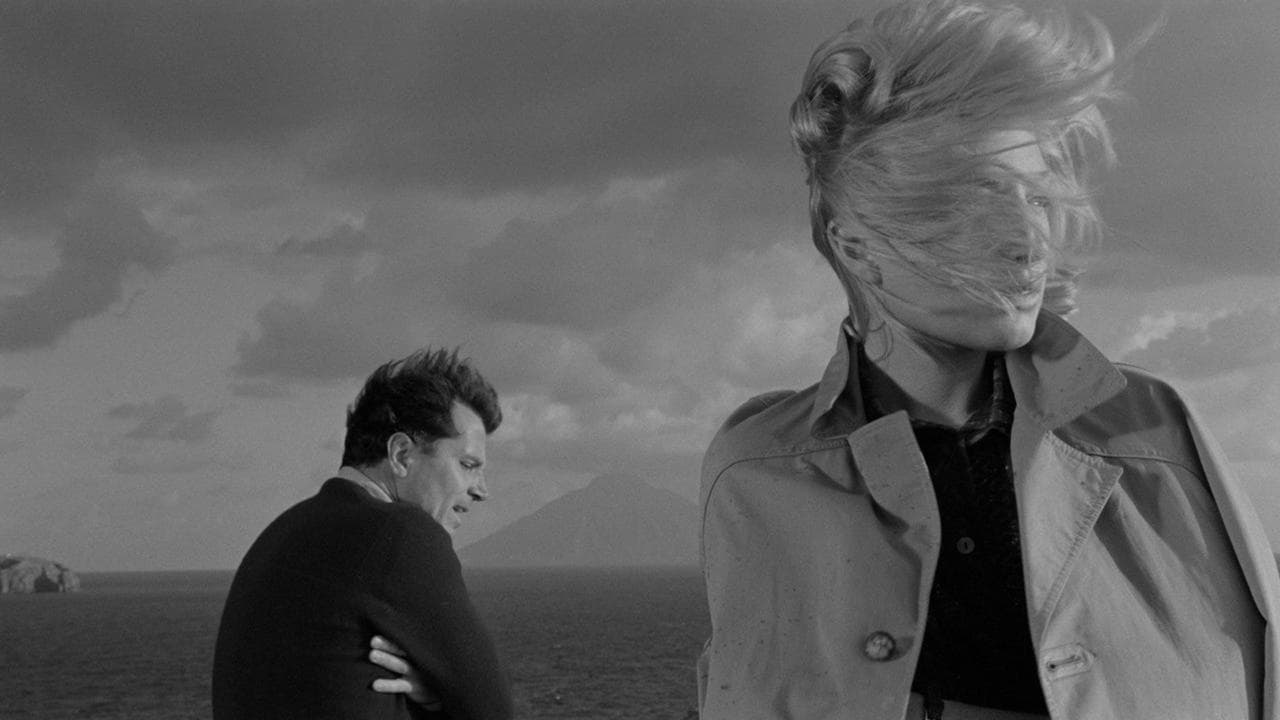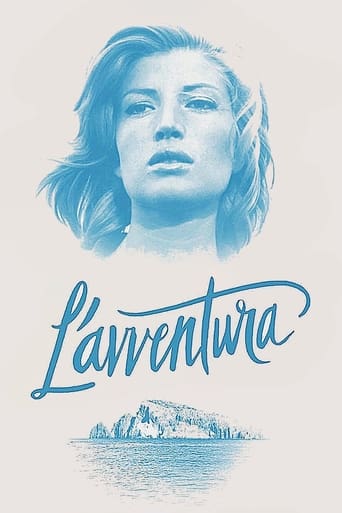

By the late 1950s and early 1960s, the Italian economy had already started stabilising and moving away from the devastating consequences of WWII. The stabilisation and subsequent economic growth took place through rapid and widespread industrialisation. One can also clearly notice a shift in the sensibilities in the Italian films which were made during these years by acclaimed filmmakers like Antonioni, Fellini, Ermanno Olmi, etc. Their films shifted away from the concerns of neorealist films of the 1940s and early 50s. In this context, it is very interesting to note the dissimilarities between a typical Italian neorealist film and a post-neorealist film like 'L'Avventura'. While Neorealism dealt with the economic fallout of WWII, 'L'Avventura' deals with a sense of disillusionment in the midst of rapid industrialisation(the very first line of dialogue revolves around how the natural woods are being being replaced by houses). While Neorealism focused on the poor working class Italians, 'L'Avventura' focuses on the privileged upper class or the bourgeois section of the Italian society.From a technical standpoint, it has to be said that 'L'Avventura' is exquisitely shot. The camera movements and numerous tracking shots are executed with a distinct sophistication and methodical precision. There are a lot of complex frame compositions that take place in the interior scenes which scream perfectionism on the part of Antonioni. The overall tone for the film is one of extreme austerity. This austerity and lack of humanity to the film is clearly meant to represent the supposed lack of humanity in the midst of mindless industrialisation and consumerism. I think one thing that the viewer has to assume in order to buy into the film's plot and story elements is that the film takes place in Antonioni's own world which is a little different to the real world. This is because accepting the reaction of some of the characters to certain occurrences in the film will involve a certain amount of the suspension of disbelief.The problem I had with 'L'Avventura' is that after a while, the relentless austerity started to get a little unbearable and tough to be receptive to. It's interesting because I know the austerity is absolutely deliberate and it's intended to epitomise the ennui that the characters get afflicted by along with Antonioni's own idea of the blandness and aimlessness of life in contemporary industrialised Italy of the early 60s. The first hour of the film is absolutely spectacular and rich with abstract existentialist intrigue. But once the group leaves the island and we re-enter civilisation, the film gets progressively less intriguing for me. I generally don't get negatively affected by the austerity of Kubrick or Bergman. But the second half of this film really started to progressively weigh me down.I don't think any acting performance in the film is particularly special. But of course Monica Vitti offers vulnerability and a sensitive touch to her character and she is the only one that the viewer can find any reason to sympathise with. But to be honest, it is clear that Antonioni is in no mood to make any character singularly likable.Overall 'L'Avventura' is a film that clearly shows a master at work who clearly has a visual flair and a philosophical voice. But the austerity and lack of humanity in the film makes it tough to rewatch and revisit too often.
... View MoreAre people as weird in foreign countries as the movies that are made in those countries? If so, I am sure glad I live in America. "L'Avventura" would still have been a weird foreign film even if it had been shorter, but at least it would have been a better movie because there would have been less of it.A bunch of people get on a boat and end up on a small volcanic island. After they walk around for a while, they decide to leave and discover that Anna is missing. They search everywhere, but she is gone. There is only one possibility: she drowned and her body drifted out to sea with the tide. Of course, we can still wonder if it was an accident, suicide, or murder. But one thing is certain: she didn't just vanish into thin air.Wait a minute! What am I saying? This is a weird foreign film by Michelangelo Antonioni. When you enter the theater to watch one of these movies, you have to check your reason and common sense at the door, or it will just get in the way of experiencing existential wonder, if that's what you're into. So, of course she might just have vanished into thin air or teleported off the island or was abducted by aliens or whatever.In any event, Anna's friend, Claudia, and Anna's boyfriend, Sandro, don't have much reason and common sense either, because they leave the island and start looking for Anna. I mean, they actually think she might be wandering around Italy, visiting museums, staying at a hotel, or anything that someone might do who wasn't last seen on a small island with no way off except by boat.They recognize that she might have drowned, but that doesn't stop them from knocking off a quick piece, because though they just met, yet they are wildly in love with each other and just have to have some right in the middle of an open field. Of course, that doesn't stop Sandro from knocking off a quick piece the next day with some woman on the couch in the hotel lobby. When Claudia catches him, he cries. He shed not one tear for Anna, but this is different. No problem, because Claudia still loves him.And Anna? You mean you're still wondering what happened to her? What do you think this is, an American movie?
... View MoreWow! Okay. Wow! If I had been in the audience at the first showing in Cannes, I would have felt I was amongst kindred souls.Great reputations don't impress me. I have to see it myself. I have given it the benefit of the doubt by bothering to read several of the comments here. I'm glad there are those of you that got something special out of this film. A good editor with a sharp knife could have improved this film considerably. Even that would still not be enough for me.Certainly the cinematography was beautiful. I just returned from a trip to Sicily and that was the initial motivations for viewing this film. It turns out that even that was not enough for me.I don't mind that Antonioni's motivation for doing the film was to explore the delicacy of human relations. I do mind that he disguised his purpose for so long. Okay, I get it that Anna brings it on herself to encourage Sandro's wandering eye. But Claudia's motivation is a mystery to me. Antonioni spends too little time motivating Claudia. Even the kiss on he boat is not nearly enough. Sandro didn't appear to be THAT good a kisser. Where Antonioni DID spend his time was largely wasted. The interminable search for Anna on the island. In real life real characters would certainly search thoroughly. But we don't have to see ALL of it. Other directors and editors have discovered ways to shorten the screen time and still give us the impression that a serious and thorough search was made. And Claudia's "running down the hall" scene ... hello? What about abandoned town of Noto scene? The deeper meaning was lost on me. If this is a part of the "new" language and "new" images everyone is talking about, well, I just don't like it. I spent 30 years in the movie biz and if I learned one thing, it's that screen time costs money. If it doesn't have a direct bearing on the plot, don't put it in. Again, if Antonioni is just breaking this rule to give us a new way at looking at movies, I don't like it.It's okay if it's not important to Antonioni as to what happens to Anna. But I feel that it is unfair for him to expect us to pay to see his movie and not tell us. We are regular folks and have a regular curiosity. But by the time this ponderous epic was finally at an end, I really didn't care either.And as to the ending, this really didn't do the women's movement any favors, did it? Like the "battered woman syndrome", she takes him back almost immediately. Bummer.I will give it another look. So many have said you need at least two viewings. Many have also said that it helps considerablu to read what critics have said in order to completely understand it. This is just wrong on so many levels. If a film can't stand on its own, it's just poorly done. I have seen many films that I have gotten more out of each time I see them, but they were always films that were worth re-watching after a first viewing. I can't say that for me this is one of them.I gave it a 6 for the cinematography.
... View MoreA tepid wandering film about a group of people boating to an island in Italy. One of the members of their party disappears and they search for her, bring in rescue to assist in the search. Later, the best friend of the girl who disappeared and the vanished girl's lover become sexually and romantically interested in each other.Not exactly a fascinating premise for a film. People have compared this to "The Passenger" but I see no comparison. "The Passenger" is fascinating, mesmerizing and really pulls you in to the journey. Here, we are reminded we are the audience watching these long, drawn out scenes that could have and should have been trimmed before the film was released. No wonder people started yelling at the film at Cannes. There is a dullness to the scenes and they linger way too long.Vitti shows conflict over her feelings for Sandro, the vanished girl's husband to be but so what? It isn't enough to keep people interested. In the final scene they both accept their fate. He's a playboy and she will accept all his flaws. Yawn, 2 1/2 hours later.
... View More